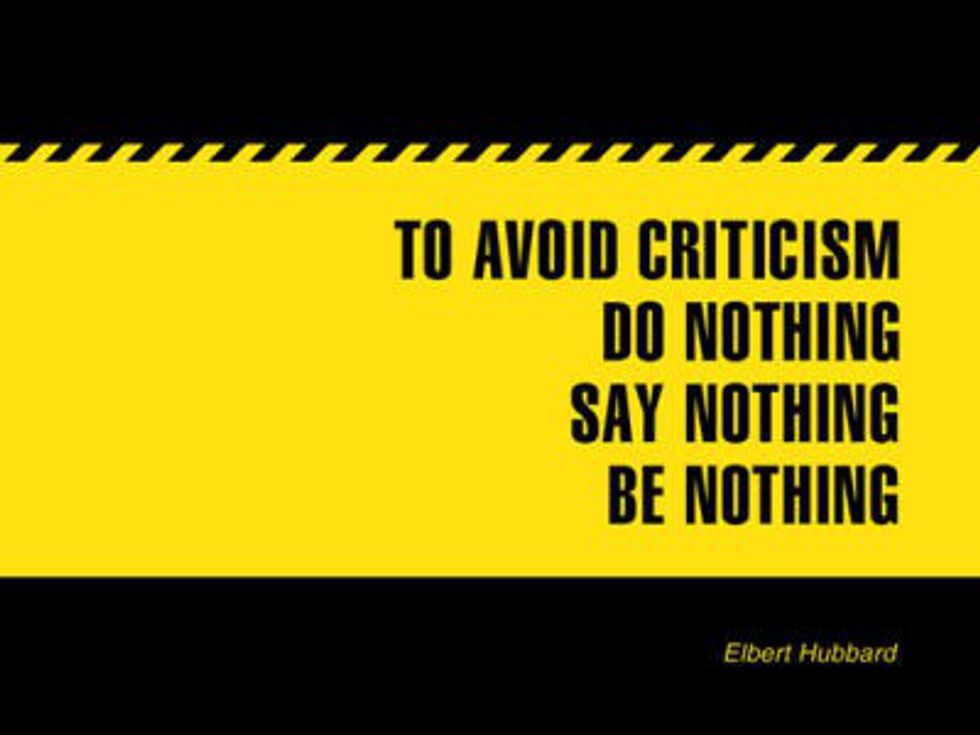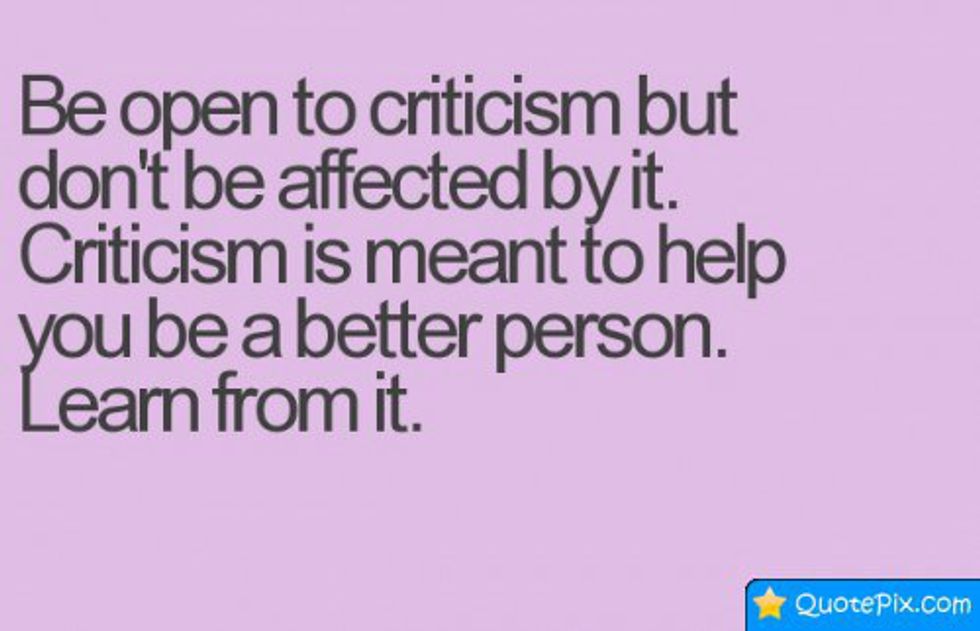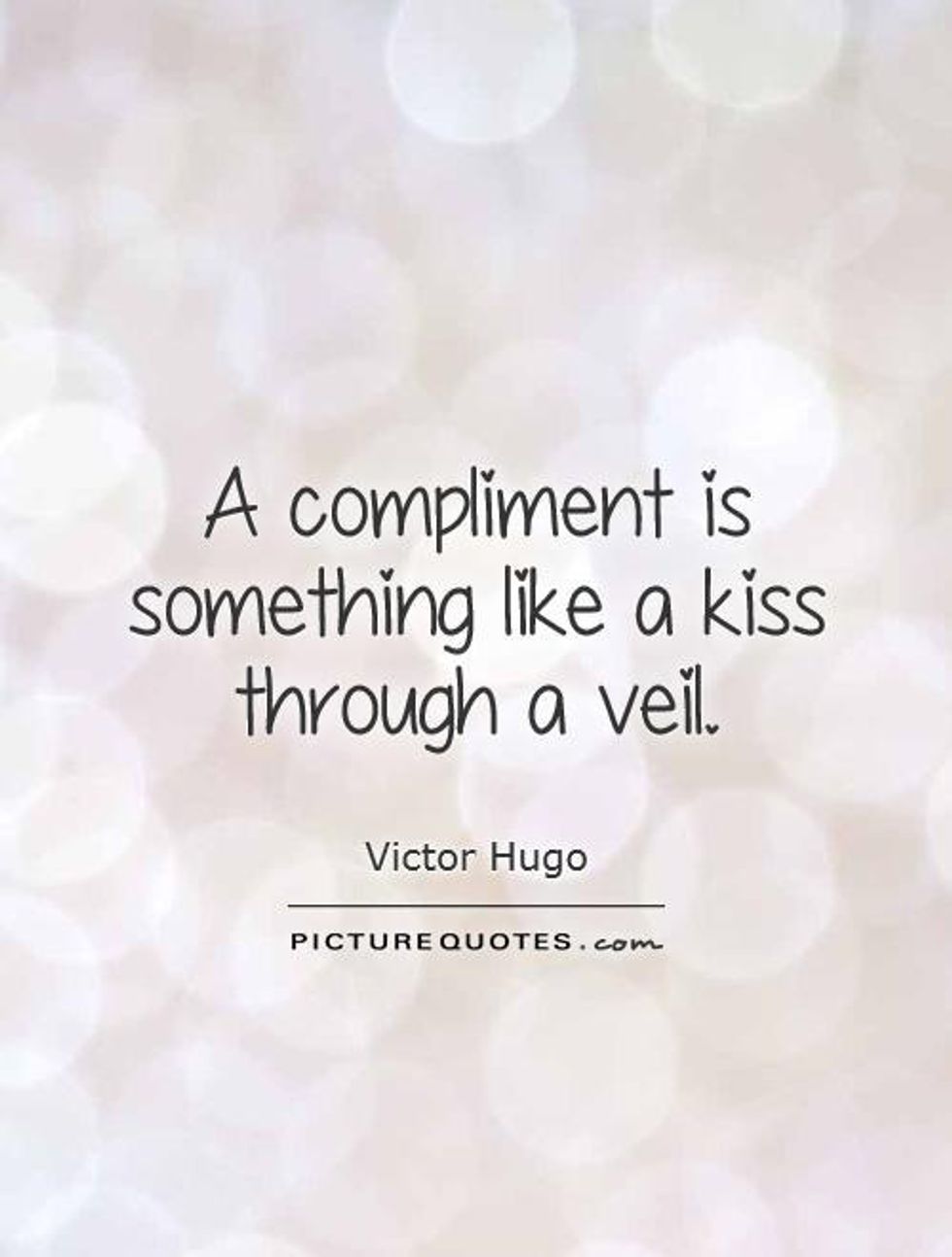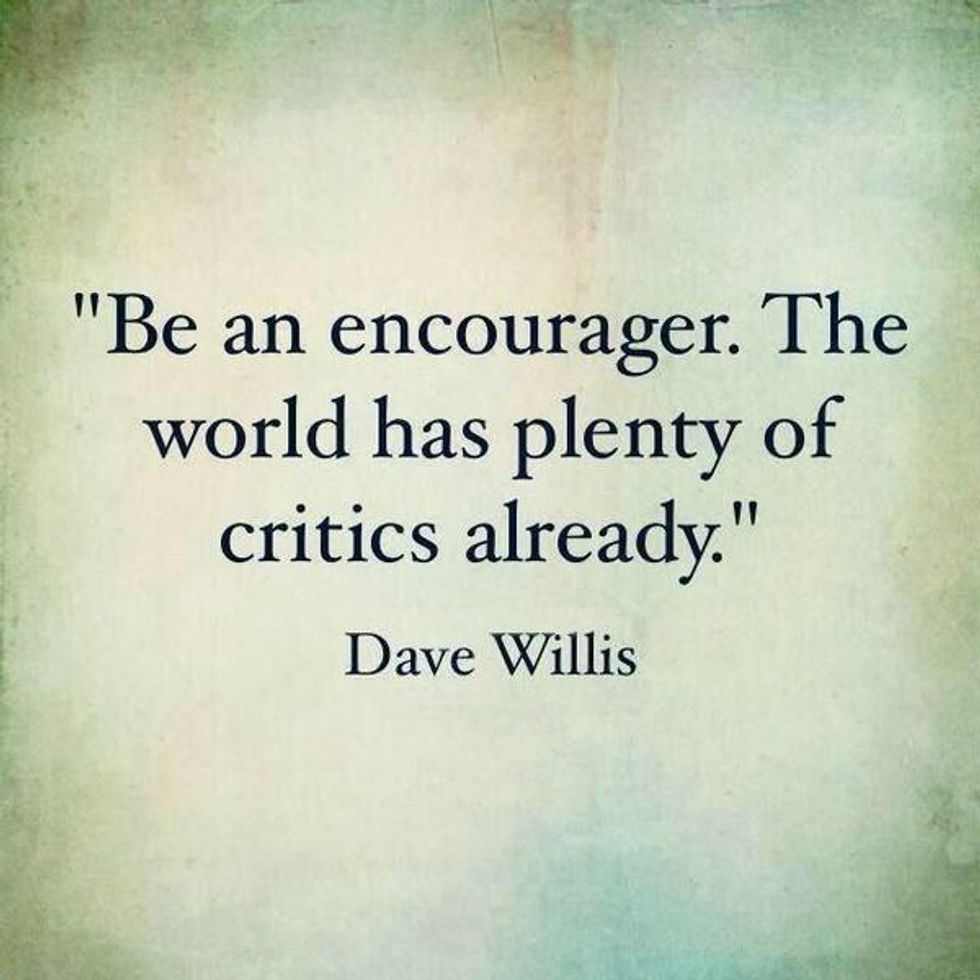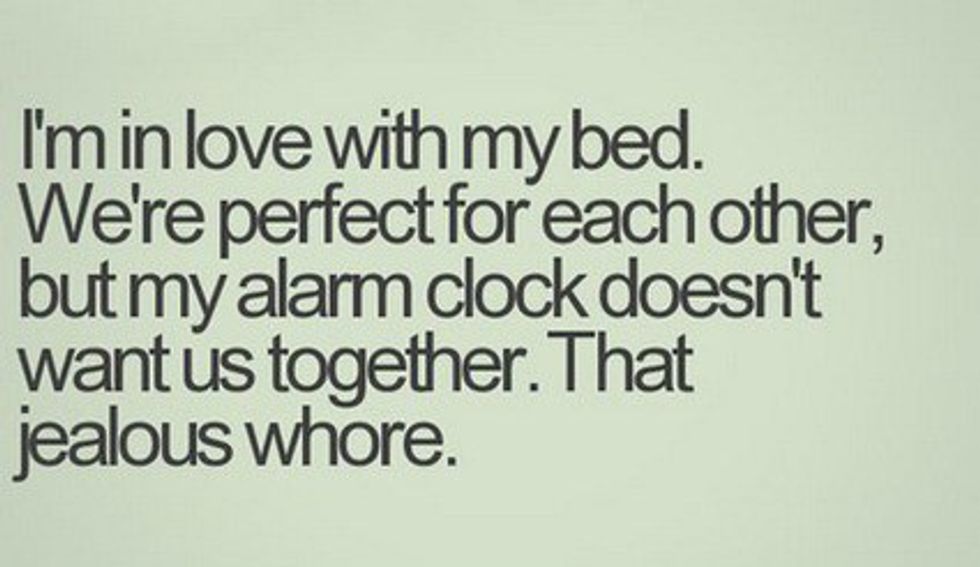Quick--think of one of your favorite artists! What is it about them and their work that captivates you? What inspires you? What holds your interest?
All of you will most likely think of a different person or group of people, and answer these questions individually. Maybe you’ll think of a movie director, a painter, a band, a photographer, an author, or another kind of artist. Maybe you’ll say to yourself, “their use of colors wows me,” “Their stories transport me to another world,” “Their sound is phenomenal,” or, “Their movies always hold my attention.” Truly, these emotions and experiences are some of the best artists can conjure from their fans. The abilities to move people, influence thought, and fill people’s lives with beauty and intrigue are some of the most enchanting in the world. In fact, due to other creators’ passions, determination, and talents, many of us become inspired to pursue art ourselves—myself included.
When I was a child, I experienced all the pleasure and wonderment reading could bring, which influenced my decision to sit at a small coffee table in my basement, Crayola crayons and passed-down printer paper at-hand, and create my own little stories, complete with illustrations and character profiles. Years later, I find myself continuing my journey, the interest in art history hitching a ride and inspiring me to travel down paths not previously considered. If it had not been for the authors that took a chance on their dreams—and if not for a mother who is equally impassioned by the written word—I might have taken a different path altogether. This is often the case; at one point in our lives, someone or something comes along and lights a spark of passion for art, fueling a fire that is not easily snuffed out, and burns bright within us. Without the art of the past, we would not get very far in the present; however, it is no secret that the life of a creator is not one of ease.
For many artists pursuing their dreams, they have taken leaps into treacherous, competitive territory, bravely facing a horde of obstacles that lie ahead. Many of us have fought relentlessly for opportunities, recognition, and accomplishment, building a structural base all our own. While some of us like to consider ourselves the, “lone wolf,” type—I know I do—the truth is, we need a pack behind us, backing us up, aiding our fights, and making sure we reach the top of the mountain, no matter the altitude. Without our loved ones, our supporters, and yes, even our, “haters,” we would be stuck in the same place for a long, long time, never knowing whether or not we were continuing down the road to success. Let’s explore why this is such an important cause, and what you can do (and not do) to ensure that your favorite creators reach their goals.
I: The Case of Constructive Criticism
“Constructive criticism,” is a term used quite often these days, and for those of us immersed in a, “PC culture,” we notice that some people are confused with, or disgruntled by this term. This becomes especially difficult when you are dealing with someone who was not really looking for constructive criticism, but was instead looking to be showered with compliments and becomes angry when they do receive a criticism. This also becomes difficult when some commenters take this as an opportunity to unleash their desires to mock or abuse, typing something insulting without much context. When you have two minorities of people who do not comprehend what true constructive criticism is, this often muddies things for others who are looking for true criticism, as those people often have the louder voices. The same can be said for those really wanting to offer support to their favorite creators, only to be intimidated and not want to hurt their feelings. This is fair; criticism of any kind can and sometimes does hurt (I am no stranger to it). You put your heart and soul into a work, breaking off little pieces of you each time and sending them out into the world, never knowing how they will be received. It is often difficult for any of us to remove our emotions from our work, and think about it analytically. Nevertheless, we must keep in mind that constructive criticism, defined as, “criticism or advice that is useful and intended to help or improve something, often with an offer of possible solutions,” by Dictionary.com, is a useful, vital tool for us. Considering this fact, it is important for our supporters and our critics to let their voices be heard.
What would you like to see? What have we done well? What do you think needs improving? What can we do better next time?
The answers to these questions can all be provided through constructive criticism. One would think that I would not have to tell you that saying, “you suck, “get a life,” or, “you’re awful,” is not constructive criticism, but I think it is necessary. While people most certainly have the ability to say and do as they please on a public platform, (as long as it is not immediately dangerous or life-threatening), just remember that you do not have to carry comments like this with you. If they cannot provide evidence, or even a simple reason why they feel that way, it holds no weight. Ultimately, a creator is the master of their work. You can pick and choose whose comments you will take sincerely, and determine whose are just meant to harm your sensibilities. If you disagree with a constructive comment, that’s alright, too. Not everyone knows what is best for you and your artwork (after all, everyone is a critic); however, it does not hurt to consider the words of those truly wanting to be of help every now and again. Maybe they can open your eyes to something you have yet to consider.
II: A Bit on Compliments
No one can argue that receiving compliments feels fantastic. It is always great to garner others’ support, and see just how enthralled with your work they have become, either in seconds or over long periods of time. Even so, sometimes it helps to be a bit more specific in our compliments. Much like constructive criticism, it is important that creators attain some compliments. It helps us with our self-esteem, and ensures that we are doing amazing things. It tells us that our efforts are not fruitless. If you have something to add, do not hold back. Even if you do not know the ins-and-outs of a particular art form, or even the terminology associated with it, that does not mean your words aren’t helpful or inspiring. Give it a shot!
III: The Effects of No Support
Perhaps the mostirritating moment in the artistic process is when creators receive nothing for their efforts; not a word, not a, “like,” not even a, “screw you.” It seems counter-intuitive, but not receiving any support leaves us in a similar predicament to not receiving constructive criticism. While these points can fall hand-in-hand, the difference lies in the fact that not showing any interest whatsoever can make an artist feel worse than when they receive some negative feedback. For some of us, our thoughts can begin running wild, trying to figure out what is working, what isn’t working, what is useful, or what is just unnecessary and not knowing when to stop. Your favorite artists cannot get anywhere if no action is being taken in lieu of their efforts. It’d be like performing in a band, playing a gig, and seeing that everyone in the crowd was just standing there silently, vacant expressions and blinking eyes. You’d feel confused, and wonder what the point would be if no one was participating in the concert experience. Even if you got booed, at least you would know that they cared enough to express their discontentment.
Truly, a lack of care is what this point highlights. Artists want to evoke something magical, something powerful in an audience; it is often difficult to know whether or not we’re doing this if no one is speaking up, sharing our works, or spreading the word. Continuing with the band analogy, do you think your favorite bands would have been as successful if no one told others about their amazing talents? If your favorite bands are super-famous, do you think many of them got there without support? I’d wager probably not. They needed small groups of supporters to be stridently vocal about their abilities as musicians. Certainly every band has a different story about how they acquired their notoriety, but I figure a great deal of them will tell you that it is in part due to the passionate reviews they received from their fans when they were just beginning their musical journeys. If you know of a small artist that is just starting out or even an artist that has thousands upon thousands of fans that you admire and support, let them know, and let others know, too. You never can tell; you could win them a bunch of new fans, which would allow them to continue to do what they’re doing. Do not be afraid to support your passions, and the passions of others. Be loud, and be persistent!
While reading this article, have you thought of any artists that need your support? Do you have loved ones pursuing a life in the world of art? Do you think they deserve more attention, critiques, or compliments?
If so, become an activist for the art world, and for those keeping it a thriving, bright community. There are so many people among you with potential and passion abound; do not let them waste it, and do not let them give up. Every artist has a different idea of success and what it means to be successful. We know we might not always be the richest or the most renowned, but if we have the support we need from our fans, we can discover our accomplishments in time. We can find our own greatness, and our own happiness. For some of us, we might be content working in our homes and selling our creations on sites like Etsy. Then for others of us, we might have bigger dreams, like becoming a famous musician or the next big cinematographer. No matter our goals and our passions, one thing is true for all of us: we can’t do it without you.


